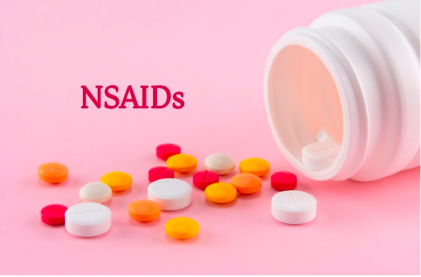Category: Medication Alerts
-

NSAIDs: Serious Infectious Complications
Nonsteroidal anti-inflammatory drugs (NSAIDs) are a drug class that reduce pain, decrease fever, prevent blood clots and, in higher doses, decrease inflammation. NSAIDs work by inhibiting the activity of cyclooxygenase enzymes (COX-1 and/or COX-2). In cells, these enzymes are involved in the synthesis of key biological mediators, namely prostaglandins which are involved in inflammation and…
-

Prolonged antibiotic treatment may do more harm in preterm infants
Today, babies born as early as 28 weeks routinely survive, as do more than half of those born at 24 weeks (although often with significant disabilities). Much of the credit goes to antibiotics, which can prevent infections such as sepsis and group B strep that a premature immune system could not have fought on its…
-

Drug Labelling error lead to ‘werewolf syndrome’ in children
Drug Labelling error from a pharmaceutical company Farma-Química Sur caused at least 20 babies to develop ‘werewolf syndrome’ and sprout hair all over their bodies in Spain. The company accidentally sold minoxidil which is most commonly used to treat alopecia as omeprazole a drug used to treat heartburn and acid reflux. What is drug labelling…
-
Metformin Use During Pregnancy for Gestational diabetes May effect Babies Growth Patterns
Gestational diabetes mellitus (GDM) is a type of diabetes that can develop during pregnancy in women who don’t already have diabetes. Gestational diabetes is affecting around 1 in 7 pregnancies worldwide, and can be associated with adverse outcomes for both mothers and babies. Causes: Gestational diabetes occurs when your body can’t make enough insulin during…
-
New measures to avoid potentially fatal dosing errors with methotrexate
Methotrexate is authorised for two different groups of indications, each with a different administration schedule: treatment of certain types of cancer of the breast, skin, head and neck, or lung for which the dosing frequency depends on the regimen and can involve daily administration of methotrexate; treatment of inflammatory diseases including rheumatoid arthritis, psoriasis and…
-
Alert on prescription insomnia medicines
Eszopiclone (Lunesta), zaleplon (Sonata), and zolpidem (Ambien, Ambien CR, Edluar, Intermezzo, Zolpimist) are some prescription medicines which are used to treat insomnia in adults who have difficulty falling asleep or staying asleep. FDA advised that with these medicines there were serious injuries including sleepwalking, sleep driving, and engaging in other activities while not fully awake…
-
Dengue, Homecare for Dengue Patients and Dengue vaccine
The incidence of dengue has grown dramatically around the world in recent decades. The peak of the dengue epidemic period is the rainy season. It is believed that climate is an important factor for dengue transmission. The simulations suggest that the greatest potential for the dengue transmission occurs when the temperature is 28.9 °C. Dengue:…
-
Update on Gilenya use in Pregnancy: multiple sclerosis medicine
Multiple sclerosis: Multiple sclerosis (MS) is a potentially disabling disease of the brain and spinal cord (central nervous system). In MS, the immune system attacks the protective sheath (myelin) that covers nerve fibers and causes communication problems between your brain and the rest of your body. Eventually, the disease can cause permanent damage or deterioration…
-
New simplified treatment for severe hypoglycaemia
Hypoglycemia is defined as blood sugar levels dropping under 4.0 mmol/L which is lower than it should be. Hypoglycemia can be mild, moderate, or severe based on the person’s blood glucose and condition. Here are the levels: Level 1 (mild) hypoglycemia: Blood glucose is less than 70 mg/dL but is 54 mg/dL or higher. Level…
-
Reports of serious eye injury due to errors in administration of Chlorhexidine gluconate which is used in umbilical cord care
WHO has been made aware of multiple, recent reports of eye injury, including blindness, with the use of chlorhexidine gluconate 7.1%, in nine countries in sub Saharan Africa. Chlorhexidine gluconate (CHX), available as an aqueous solution or as a gel (delivering 4% chlorhexidine), is used in umbilical cord care. WHO recommends daily chlorhexidine (4%) application…